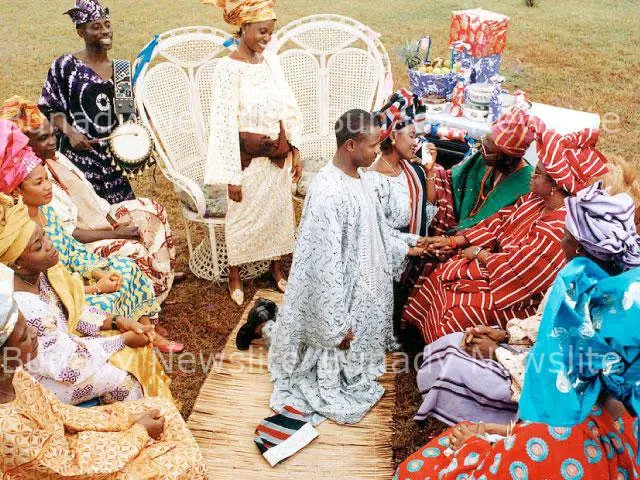The Yoruba people are scattered throughout different parts of the world. Here are African countries they call home.... CLICK TO READ THE FULL NEWS HERE▶▶
The Yorubas, a nation primarily found in Nigeria, trace their origins back to Ile-Ife, Osun State, Nigeria.
According to their worldview, Ife is the place of origin for all humankind, holding significant religious and political importance. The Yoruba deities Odudua and Obatala, under the guidance of creator Olodumare, initiated the creation of the world there.
Ketu is a historic Yoruba kingdom spanning parts of modern-day Benin. The city of Ketu, its capital, is considered one of the oldest Yoruba settlements.

Founded by Sopasan, a descendant of Oduduwa (a legendary Yoruba ancestor), Ketu boasts a rich history deeply intertwined with the Yoruba people.
The rulers of Ketu, known as Alaketu, held a prominent position within the Yoruba hierarchy and maintained close ties to the revered city of Ile-Ife.
The Oku people, also known as Aku Marabout or Aku Mohammedans, are an ethnic group primarily residing in Sierra Leone.
Their origins trace back to the 19th century, when Yoruba people were liberated from the horrors of the slave trade.
Many freed individuals, often Islamic scholars or marabouts, were resettled in Sierra Leone as Liberated Africans. Others joined them as voluntary settlers. Over time, their descendants formed the distinct Oku community.
African countries with Yoruba people [Buzznigeria]
The Akus, a minority Gambian ethnic group that speaks the Aku language, are a mix of freed slaves, many of whom were of Yoruba descent.
Their Nigerian ancestry is evident through their language. For instance, the word “ashobie” is used to describe group outfits worn on special occasions. The Yoruba also call it “aso ebi.” Another Aku tradition is pouring libations to recognise ancestors.
The Yorubas in Ivory Coast are known as Ejigbos, and they came from Osun State. The Ejigbo people have a long history of migration, starting with settlements in Benin, Togo, and Ghana before eventually arriving in Côte d’Ivoire in 1902.
Initially drawn by trade opportunities, the Ejigbo migrants primarily engaged in farming and trading local goods. Over time, they established a substantial community in Côte d’Ivoire, with their descendants continuing to reside there today.
Approximately 90,000 people in Atakpame, Togo, speak the Ife dialect of Yoruba. These residents primarily descend from Yoruba migrants who originated from Ija-Oku in what was once Dahomey.
They settled in Togo and established the city of Atakpame. The Ife dialect preserves many characteristics of the original Yoruba language, including its tonal system.
Unlike modern Nigerian Yoruba, which has lost the distinction between mid-tone words, the Ife dialect continues to use and recognise this tone. This is evident in both spoken and written forms of the language.
Yorubas in other African countries [musicafricaawake]
There is a Yoruba community in Ghana, though they are a minority compared to other ethnic groups. The Yoruba ruling dynasty in Ghana has a rich history dating back over 200 years, nearly as old as the Yoruba people in the country.
The founder of this dynasty was an influential Nigerian settler from Ilorin, a wealthy businessman who was enstooled by the British Consul as Head of the Mohammedans. His palaca can be found in Makola International Market in Central Accra, Ghana.
The monarch of the Yoruba people in Ghana is called Chief Braimah, and he has a council of chiefs. The Yoruba people are originally from Nigeria, and their presence in Ghana is due to historical factors such as migration, trade, and intermarriage.
Finally, countries like Benin and Togo have indigenous Yoruba people from Ile-Ife while others like Ghana and Gambia are migrants from Yoruba towns in Nigeria.











